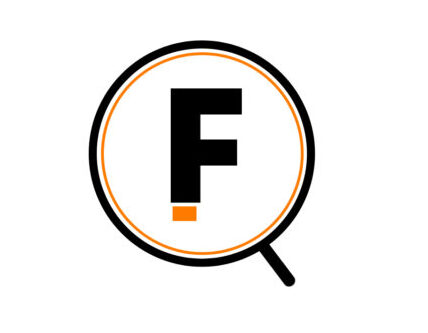What Is Private Money Lending?
The private money lending is the process whereby people borrow money from other individuals or institutions apart from the traditional banking systems.
One of the money lending methods is privately lending when an individual or a company is involved with such process, instead of the bank.
This category of loan is usually provided for property owners and has fast turnaround time for people who might not be able to access other types of financing or need cash urgently.

Who Are Private Money Lenders?
They are lenders to people in the form of micro-loans. They do not fit in the conventional banking institutions such as banks and credit unions, which function as typical financial entities. Below are some examples of private money lenders:
Investors: These are individuals that are financially stable and have a sector of their finances that they can use to invest in other ventures with a potential to yield a return.
Companies: These are entrepreneurial institutions that offer money to finance businesses. Their operation may be similar to that of the bank but is not controlled by the same rules.
Hard money lenders: These investors, instead, aim at making short-term, real estate secured loans. The credit card companies usually have high-interest rates and charges on top of that.
Peer-to-Peer lenders: The emergence of these platforms results in a direct match between the two, lending money without the involvement of an established financial institutions.
The private money lenders seldom provide to their borrowers loans secured by the property being mortgaged, rather than the borrower’s creditworthiness. They can provide prompt access to funds and relaxed lending standard taken from conventional lenders. Also the terms for this loans can be more strict, the rates are higher.
Private Money Lending Involves Several Basic Principles And Aspects Such As:
Collateral-based lending: When the private money lenders lend by taking the property as the security, this is usually the collateral they are based on. The property, therefore, is security for the debt, and the lender’s risk is thus reduced.
Higher interest rates: When a person acquires an amount of funds from private money lender, it will mostly attract a higher interest rate compared to the traditional loans. Since there is higher risk associated with private money loaning as well as many private money loans being of shorter time duration, this is why the interest rates are higher for the private lenders.
Shorter loan terms: Normally, private business capital lending are for short-term purposes, and the period is from a couple of months up to 3 years or so. This specific loan type is frequently used by investors who need to set up the project quickly or to have a fast access to the capital.
Quick access to funds: Fast loans are available for those who may be looking to easy access of money through private money lenders and not traditional lenders. However, fast and simple access to loans might provide borrowers who need quick response on profitable opportunities or a cash during emergencies with convenience.
Flexible lending criteria: Dealing with private money lenders, there might be an opportunity that they have different standards in lending comparing to the formal institutions. They could weigh in on the collateral value how the borrower have a keen skill and a project plan or something else which may not be in a credit score.
Secured transactions: They are negotiated with private parties are pledged against real estate being financed as collateral. The lender can take possession of the property in case of default of repayment.
Diverse uses: The private money lending can have a range of different tasks, like real estate investments, for example fix-and-flip projects that the participants use for their purpose, bridge loans that help them get through some periods until they get a permanent loan, and other business ventures where standard financing can’t be afforded or it doesn’t fit.
Advantages Of Private Money Lending
Private money lending offers several advantages as seen below:
One of the advantages of private money lenders is that they can have better rates versus conventional lenders which assist a fast turn around phase to loan applicants who need short-term capital for new opportunities that require immediate actions.
Still, it could be a bit more lenient in identifying the borrowers, including aspects beyond credit score like having a collateral, experience, and a plan for future.
These loans can be given for diverse reasons like real estate investments, bridge loans for short-term needs or fixing and flipping so as to repurchase/sell the property in this case instantly.
It can be a choice for the borrowers that are not likely to get the traditional credit by credit problems or the non-conventional project requirements.
The rates and periods can be regulated between the lender and the borrower individually, which yields more specific loan rollouts than traditional loans.
Disadvantages Of Private Money Lending
Private money lending also has several disadvantages as discussed below:
This type usually appending with higher interest rates and fees to common loans, therefore borrowing becomes more expensive.
In many cases, these loans can have notably shorter repayment periods, which in turn might create higher burden of monthly payments and necessitate frequent refinancing process.
As private money lending are more asset-based than traditional financing systems, higher risk is involved when the borrower misses her payments. The risk of losing those assets is far more likely due to this.
The creditors are in a situation where they have fewer laws to follow than that of the traditional banking institutions that puts at risk the borrowers’ security.
It might not be that due to this widespread accessibility as opposed to conventional funding sources could make it difficult for some borrowers to get these loans.
Moreover, it may be more restrictive in terms and conditions than traditional lenders and at the same time, it can increase the difficulty of the borrowers to comply which may in the end, prove to be detrimental to their financial conditions.
How To Get Your Loan From A Privately-Funded Lender
When borrowing money from private money lenders, it is important to consider the following tips:
Understand the terms: In a careful scrutiny, please make sure you familiarize the loan terms, interest rates, fees, repayment schedule and any penalties that will be imposed for late payments or defaul.
Research the lender: Do a detailed study of private money lender by considering things like their proven reputation, efficiency in business, and their previous project record. When applying for a loan, you should do your research and find reviews and testimonials from other borrowers.
Prepare a strong proposal: Give a clear and specific pitch which will bring down all details which you think are necessary for the project or investment. Make sure that the plan of action is comprehensive, offers a financial profile, and provides relevant collateral information.
Negotiate the terms: Bring the intricacies of the loan into negotiation like the rate of interest, service fees and repayment schedule. Concentrate on words that match with your personal financial situation that in turn are suitable to you.
Have a clear exit strategy: Make an exit strategy clear to your lender(?) which repay the loan. This could be done by refinancing with a mainstream lender, by selling the property or sending profits generated from the project.
Be transparent: Let the lender know the clear picture of your financial condition, the reason for the loan, and any possible risks involved through honesty. To achieve the fundraising’s goal, a key factor is the building of trust among investors.
Consider legal advice: Sit down with a lawyer to go over the loan agreement and keep a close eye on its implications for you. Professional advice can explain your legal implications summed up.
Prepare for due diligence: Be ready to get documentation that is going to be examined by the banker and which involves the assessment of property and the credit status.
Stay in communication: Continue in constant communication with the lender while during the entire lending cycle and for the repayment period as well. Immediately react to the problems and keep the arguments to a minimum.
Evaluate risks: The participation in private money lending carries with it some risks, the destruction of collateral being the most prevalent in case you default. Evaluate the benefits over the risks if the solution is applicable to you.
If you manage to do this advice that is provided, then you would have an easier way to borrow money from some private money lenders.



